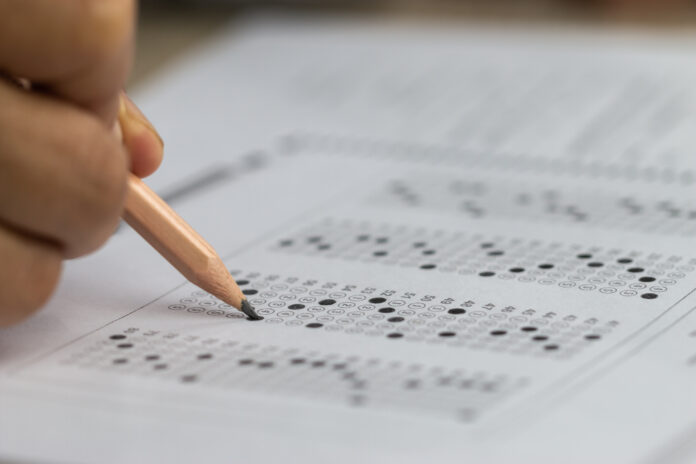Several Democratic state lawmakers are calling for Gov. Bill Lee to suspend teacher evaluations for the year and reconsider standardized testing after Lee’s announced he would work with the Tennessee Legislature to suspend accountability measures tied to standardized testing for teachers.
Four members of the House Democratic caucus, led by Rep. John Ray Clemmons, D-Nashville, sent a letter to Lee and Tennessee Education Commissioner Penny Schwinn calling to skip teacher evaluations and reconsider standardized testing for the 2020-21 school year.
Joining Clemmons in the effort were Reps. Bill Beck, D-Nashville; Jason Hodges, D-Clarksville; and Gloria Johnson, D-Knoxville.
“While there are admittedly benefits to testing and accountability under normal circumstances, there is no standardized test or evaluation this year that will provide a true and accurate indication of a teacher’s knowledge or skills, much less fairly assess a student’s progress,” the letter reads.
“Standardized testing this year will only serve to cause undue stress, take valuable time away from actual teaching and learning … and cost our state in excess of $20 million that could be more productively invested in our schools.”
The price tag for the Tennessee Comprehensive Assessment Program (TCAP), the state’s standardized testing program, was about $47 per student, or $37.6 million, in the 2018-19 school year, according to a comptroller report published this month. Federal funds were allocated to cover 22% to 35% of test administration contract costs.
Another cost of standardized testing is the time teachers and students are required to invest in test preparation and administration – an even higher price in a year students are projected to face learning loss of 50% or more because of extended COVID-19 school shutdowns. The Tennessee Department of Education has confirmed back-to-school student checkpoint test results are consistent with learning loss projections.
The Tennessee Education Association (TEA) called for the suspension of standardized testing in July.
“In a normal year, TNReady is a deeply flawed measure of academic achievement and teacher performance,” TEA President Beth Brown said in a July statement. “Educators and students already face many new challenges and additional stress in the coming year, it would be unfair and inappropriate to put them through the state’s high-stakes summative testing system. Moreover, because of the wide disruption in instruction there will be no validity or reliability in TNReady data.”
TNReady is a part of TCAP and is designed to assess student understanding, not only basic memorization and test-taking skills, the state says on its website.
Lee and Schwinn have pledged to work with the Legislature, which has the ultimate say, to suspend accountability measures tied to testing this year. Both have stressed the importance of assessments to inform future response to student learning loss after extended time away from the classroom, however.
Schwinn noted last week the federal government has been clear there are no plans to suspend federal testing requirements for 2020-21. U.S. Secretary of Education Betsy DeVos noted the importance of standardized assessments in a letter to state education officials last month.
“Make no mistake,” DeVos wrote. “If we fail to assess students, it will have a lasting effect for years to come. … Opponents of reform, like labor unions, have already begun to call for the permanent elimination of testing. If they succeed in eliminating assessments, transparency and accountability will soon follow.”
Many in the Tennessee education community agree. A recent poll of parents conducted by the State Collaborative on Reforming Education (SCORE) found the majority of Tennessee parents are concerned their child has fallen behind academically. More than 80 percent of parents statewide believe testing is important to ensure students meet state standards in reading, writing and math.
“We cannot fix what we don’t see,” Patricia Levesque, CEO of the Foundation for Excellence in Education, said in a statement. “By knowing how each child is performing compared to the state standards, educators and policymakers will have honest and clear evidence to make the best decisions to ensure all children receive the personalized instructional support they need.”
Accountability measures, teacher assessments and TNReady testing administration are issues the Legislature will consider when it returns in January.
Originally posted on The Center Square. Republished with permission.







